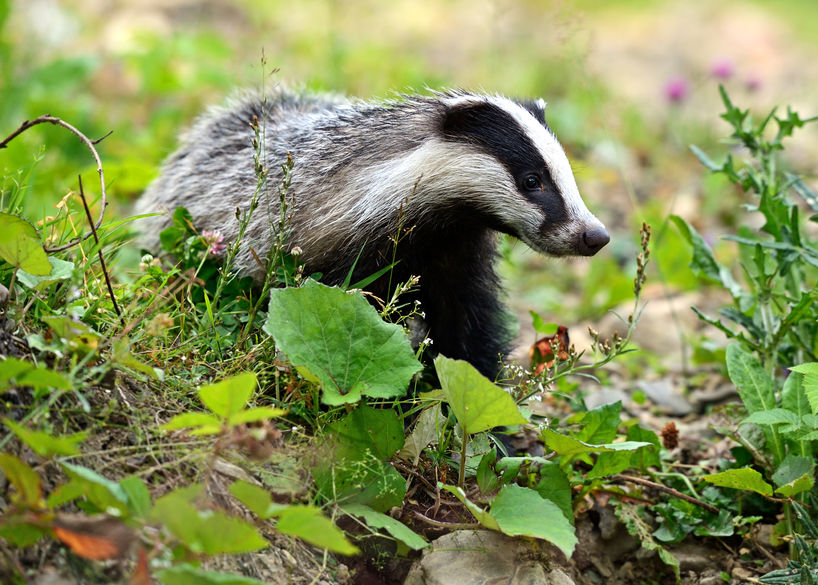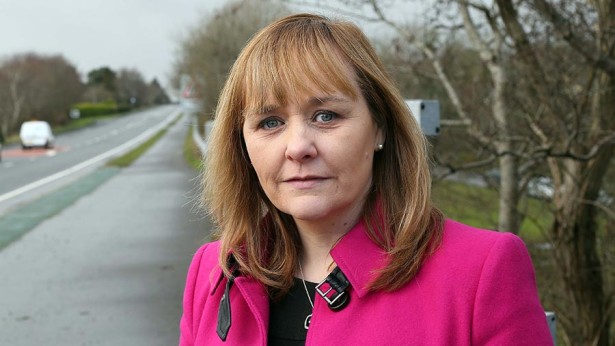
A package of measures has been proposed to eradicate Bovine Tuberculosis (bTB) from cattle that costs the Northern Irish taxpayer up to £30m a year, the measures include a badger cull.
Agriculture Minister Michelle McIlveen has restated her commitment to drive forward the eradication of Bovine Tuberculosis (bTB) from the cattle population in NI.
The Minister was speaking in Belfast at the formal launch of the TB Strategic Partnership Group’s (TBSPG) long-term strategy document on TB eradication.
The TBSPG is a high-level advisory group established in 2014, chaired by Sean Hogan. The group was tasked with developing a strategy and implementation action plan to effect a progressive and sustained reduction of TB in the cattle population here, with a view to eventual eradication.
Culling of badgers in areas with high levels of bovine tuberculosis (TB), introducing capped compensation for pedigree and non-pedigree TB reactors, changes to testing and requirements for better on-farm biosecurity have been recommended to the Department of Agriculture, Environment and Rural Affairs to tackle bovine TB in Northern Ireland.

The TB Strategic Partnership Group has proposed up to 10 "intervention areas" where there is a high incidence of the disease. Each would equate to a circle with a radius of up to 3.7 miles (6km).
The group have also recommended that compensation paid to farmers for non-pedigree TB reactor animals is capped at £1,500 and at £1,800 for pedigree animals. All pedigree animals will be given a 20% bonus on their standard commercial value as they stand meaning specific pedigree breeding lines would not be taken into account.
Agriculture Minister McIlveen said: “Since taking up my post, I have travelled extensively across Northern Ireland and have heard first hand, from many farmers, of the economic and social impacts of a disease that has blighted the industry for much too long.
“One of my key objectives is delivering a profitable farming industry and I am determined to do everything I can, in partnership with industry, to safeguard our £1billion plus livestock industry which depends significantly on exports."
'Costly and devastating'
Seamus O’Kane, President of the British Veterinary Association (BVA) Northern Ireland Branch, said vets welcome this 'strategic, integrated and fresh approach' to the eradication of the 'costly and devastating' disease from Northern Ireland’s livestock.
“We are particularly pleased to see an emphasis on an increased role for vets in practice. The strategy underlines timely and appropriate communication to ensure all stakeholders know their own role in the effort to make Northern Ireland bTB free, signalling the importance of closer cooperation between farmers, vets and government.
“We are pleased to see the strategy acknowledge the need to control the wildlife reservoir, and that culling, where necessary, will be considered as part of the integrated approach. We will look carefully at the detail of any proposed culls in the future.
“The continuing commitment to research and the strategic deployment of testing methods such as the gamma interferon test are also welcome announcements. We would emphasise that it is important that the gamma interferon test is used in a strategic way, that is targeted and defined by the epidemiology, particularly with the suggested cap on compensation.
“Overall, we agree with the integrated approach advocated by the TBSPG’s proposed strategy and believe this is what is needed to achieve the long-term goal of TB eradication in Northern Ireland.”
